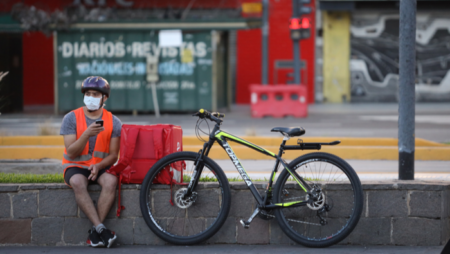There are millions of platform workers globally, doing work outsourced or organised via digital platforms or apps in the gig economy. Previous research has shown that platforms often operate in relatively unregulated ways, and can encourage a ‘race to the bottom’ in terms of workers’ ability to defend existing jobs, liveable wages, and dignified working conditions.
The potentials and risks of platform work touch down starkly in South Africa, a country that, by some measures, has the world’s highest income inequality, and 28% unemployment rates. The country’s well-developed internet infrastructure has brought a flood of potential platform workers online in search of opportunities.
A new project run by a coalition of law and social science researchers from the UK and South Africa aims to prevent the ‘race to the bottom’ in the digital gig economy, by establishing how policy and practice around platform work can help support worker’s rights. This will include the development of a Code of Practice and a ‘Fairwork Foundation’, which will operate much like the Fairtrade Foundation for goods and products.
“This programme of work aims to not just uncover where fair and unfair work takes place, but also seeks to codify that knowledge into a Fairwork certification scheme. This initiative will ultimately allow for the development of an international standard for good-quality digital working conditions,” says Professor Mark Graham, project lead and expert in digital inequality at the Oxford Internet Institute, University of Oxford. “South Africa is the ideal place to begin the scheme due to its advanced labour code and stable political and legal institutions, as well as the popularity of platform work.”
The project will be delivered in five stages, aiming for completion in 2021. As part of the project, a post-doctoral position at the University of Cape Town is currently open for applications.
The project is funded by the UK Economic and Social Research Council as part of its GCRF New Models of Sustainable Development programme.
For more information, visit http://fair.work/




